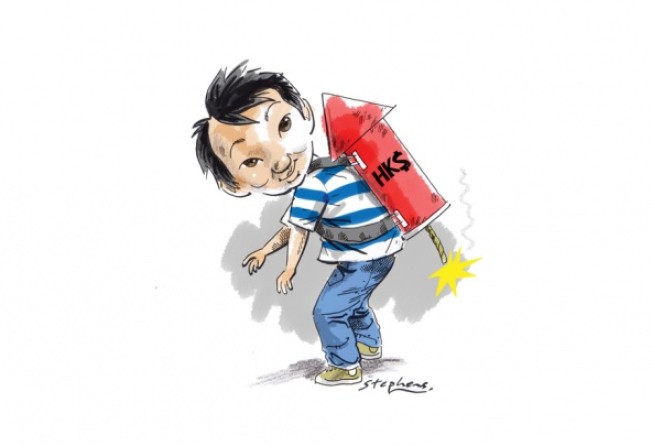Free kindergarten education will boost the whole of society
Sue Grieshaber says to prepare for the launch of free kindergarten education, we must learn from international studies to design a system that fosters quality and leaves no child behind

Hong Kong is getting ready for 15 years of free education, which will be groundbreaking if achieved. As it will take the Committee on Free Kindergarten Education two years to come up with a set of recommendations, what issues should be considered? How can a high-quality, publicly funded kindergarten system be developed that also supports the changing nature of society?
Free kindergarten education is considered essential by many involved in early childhood education. Parents in Hong Kong have shouldered the major responsibility for fees for many years, and want to be relieved of the expense. This became clear with the release of findings by the Hong Kong Institute of Education indicating that more than 90 per cent of 2,343 parents surveyed supported full subsidisation of kindergarten education.
Historically, the government has accepted little responsibility for the provision of universal kindergarten education, preferring a market approach. But this creates volatility in terms of supply and demand, affecting quality. Government involvement creates stability. This in turn produces less disruption economically, especially for societies with declining birth rates, increasing numbers of migrants, children with additional needs, and a rise in family poverty.
The committee and subcommittees will be deliberating on many of the same issues that have been debated worldwide: the purpose of kindergarten education, choice, demand, service types, governance, quality, teacher qualifications, vouchers, access, government costs, teacher salaries, teacher-child ratios, curriculum, assessment, and children with additional needs, to name a few.
Other considerations are the share of the city's gross domestic product spent on early childhood education, the child poverty rate, migrants and the immigration rate, the birth rate, and existing and required services to support all children and families.
The Organisation for Economic Co- operation and Development suggests that state-provided early childhood education is a public good and, because of this, it should be a state responsibility. It also recommends that 1 per cent of GDP be spent on such education. Countries like Sweden, Norway, Finland and Denmark, however, spend much more.
The arguments for considering early childhood education as a public good are similar to those used in favour of publicly funded primary and secondary education. Government provision of high-quality early childhood programmes contributes to the health of a nation's children.
International research has identified many factors that produce high quality. Those most important for Hong Kong include government provision of full subsidy to non-profit preschools, and full subsidy for full-day as well as half-day programmes; employment of teachers with degrees in early childhood education for each class of children aged three to six; lowering the teacher-child ratio; establishment of comprehensive professional development and certification for all staff; and the establishment of a quality assurance system.
Cost-benefit analyses in the US show that the benefits to societies of high-quality early childhood education are greater than the costs. Various studies internationally have demonstrated that children attending high-quality early childhood programmes have better school records, better job opportunities and higher incomes than those who do not. These studies have persuaded governments to support such schemes.
What these studies do not show, however, is how high-quality early childhood programmes should be planned, and the role that families should play. These are decisions that the Hong Kong committee must address.
Besides the obvious benefits to the children themselves, there are other reasons governments invest in early childhood education. Two that are relevant to contemporary Hong Kong relate to demographic changes and educational disadvantage.
First, Hong Kong faces the unique situation of approximately 3,000 young children who cross the border daily from the mainland to attend kindergartens in the city. This brings many challenges for children and their families. For teachers, there are social, educational and, in some cases, cultural challenges because some of these young children may not achieve educational success as expected, particularly if the language used at kindergarten is different from the child's first language. Second, early intervention programmes for children with additional needs, and for children from families with low incomes, have not been a priority in Hong Kong.
These are two areas where early intervention programmes can assist child development and school success. Other governments, for example in England, provide early entry to kindergarten for children with additional needs and for those from families with low incomes because high-quality programmes can reduce educational disadvantage.
Such decisions are consistent with governments seeing early childhood education as a public good with public benefits. Let's hope that the Hong Kong committee will use international research to govern its decisions and not revert to an outmoded market model that guarantees neither quality nor fairness.
Professor Sue Grieshaber is head of the Department of Early Childhood Education at the Hong Kong Institute of Education